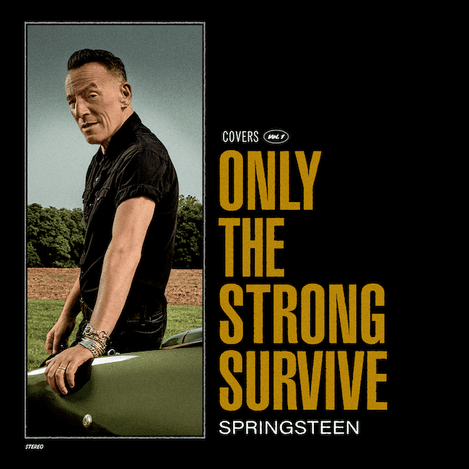Bruce Springsteen’s Only The Strong Survive is a love letter to soul that lacks purpose
"Only The Strong Survive"

Bruce Springsteen has been on a roll lately.
His last two albums, Western Stars and Letter to You, did just about as well as is possible for a 70-plus-year-old rock star, marking yet another high-water mark in a career that’s been full of them. And he’s not achieved this by taking his music in any radical new directions: Letter to You sounded like a brilliant rerun of Tunnel of Love, which makes it about 35 years behind its time. People still like Springsteen’s music because he still writes consistently brilliant songs – songs which outshine the efforts of his imitators, whether they come from New Jersey or North Shields.
All of which makes Only the Strong Survive a rather strange undertaking. The concept – a cover album of soul classics like “I Wish It Would Rain” and “What Becomes of the Brokenhearted” – sounds like every bad ageing rock star idea, until you remember that this is Bruce Springsteen, not Rod Stewart. After all, this isn’t his first covers album: 2006’s We Shall Overcome took a collection of old folk songs and turned them into rambunctious bar-room rockers, in a way that stayed true to the originals while reinventing them in a way only the Boss could. But Only the Strong Survive feels less like a creative experiment and more like a slightly awkward passion project, if only because the divide between rhythmic soul and Americana just isn’t as wide as you might expect.
This creates something of a dilemma, where Springsteen seems unable to decide whether he’s trying to do faithful versions of his favourite soul songs or to rock ’em up a bit. You could read the production either way: on the one hand, Rob Mathes’ string arrangements and the E Street horns are every bit Motown and Stax, but then they’re every bit Springsteen, too. The title track’s arrangement is pretty indistinguishable from Jerry Butler’s original, despite the rugged earnestness of Bruce’s rather different voice. “Nightshift” (covering the post-Richie Commodores song) starts close to the original, but diverges from its laid-back groove towards a more muscular, rocky rendition. Both performances are fine, but they’re certainly no improvements on their models, and they’re not different enough to make it seem that Springsteen was even trying to say anything new.
As the album progresses, this pattern continues. “I Wish It Would Rain” is fine, but suffers from its own earnestness, as does “The Sun Ain’t Gonna Shine Anymore”. “Don’t Play That Song’s” spoken-word interlude lacks the rip-it-up charisma of Bruce’s interjections on, say, The River, and sounds more like he’s trying to read a children’s story book – too slow, too deliberate, too wide-eyed to hold the listener’s interest.
While most of the covers are at least enjoyable to a point, some, such as “I Forgot to Be Your Lover” are downright confusing. William Bell’s original is a gorgeous ballad, the softness of Bell’s voice filling it with a sense of tender regret. In stark contrast, Springsteen sounds almost passive-aggressive as he barks, “I’ve been working for you, doing all I can, but working all day don’t make you a man – I forgot to be your lover!” It’s worth noting that this is the only track on the album that doesn’t fade out: even the closer, a version of the Supremes’ “Someday We’ll Be Together”, dwindles away with an undeniable lack of purpose.
And that’s the nub of it, really: what’s the point of all this? Nobody can deny Bruce Springsteen’s right to celebrate songs that he loves, but why interrupt a run of brilliant self-penned albums with something that treads the thin line between homage and karaoke? It would be easier if this album were bad, which it isn’t: it’s a competent, often fairly enjoyable set of performances. But as neither good Springsteen nor good popular soul, it’s likely to fade out of most listeners’ memories long before the final track drifts off into nothingness.
Get the Best Fit take on the week in music direct to your inbox every Friday

Tunde Adebimpe
Thee Black Boltz

Julien Baker & TORRES
Send A Prayer My Way

Bon Iver
SABLE, fABLE





